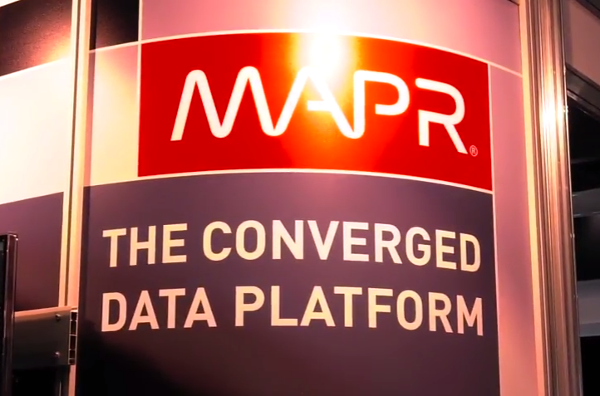 BIG DATA
BIG DATA
 BIG DATA
BIG DATA
 BIG DATA
BIG DATA
MapR Technologies Inc., one of the troika of unicorn startups that emerged from the early days of the big-data movement, may cut up to 122 jobs and shut down its Santa Clara, California headquarters if it can’t secure additional funding.
The company, which raised a total of $280 million in financing since it was founded in 2009 and whose market capitalization once topped $1 billion, said it is seeking a “strategic transaction” that would enable it to avoid closing its headquarters. The company said it has “more than one letter of intent from interested parties.”
In a May 13 letter to employees released under California’s Worker Adjustment and Retraining Notification laws, Chief Executive John Schroeder blamed the decision on “extremely poor results” in the most recently completed fiscal quarter. “While the reasons for the results are not entirely understood, they were at least in part to to the sudden, last-minute and unexpected postponement of several customers’ timelines to make a purchasing decision,” he wrote.
The results came as MapR was in the process of negotiating additional funding with an unnamed party, which ended negotiations on the news, the letter said. MapR said it’s continuing to pursue financing options but expects to “cease operations and close the Santa Clara headquarters” by June 14 if no additional funding materializes.
MapR’s most recent funding round of $56 million came in September 2017. At the time, executives said sales had grown 70% year-over-year and the company was planning to expand its global presence. However, signs of trouble became evident a few months later when Schroeder abruptly replaced a high-profile CEO the company had hired away from Oracle Corp. after just two years on the job.
MapR was one of three well-funded startups – along with Cloudera Inc. and Hortonworks Inc. — that emerged a decade ago to commercialize products and services in the open-source ecosystem around Hadoop, a popular software framework for processing huge amounts of data. The hype peaked in early 2014 when Cloudera raised a massive $900 million funding round, valuing it at $4.1 billion.
Hortonworks went public in 2014 and Cloudera followed in 2017, but both saw shares tumble as market competition intensified and customers began moving rapidly to the cloud. Cloudera and Hortonworks merged last fall, but the stock of the combined entity has continued to fall, slicing market value by half over the last seven months. MapR announced its intentions to go public more than four years ago, but never followed through, opting instead to raise two more rounds of venture funding in 2016 and 2017.
The MapR news didn’t surprise David Vellante, chief analyst at Wikibon, a sister company of SiliconANGLE. “I’ve always said about markets in general – and Hadoop in particular – that the leader can make money, number two is lucky to break even and number three – well it’s not even worth staying in business because there’s no money to be made,” he said. “Think MapR.”
Cloudera and MapR have both attempted to distance themselves from the Hadoop market in recent years as the once-expected riches failed to materialize. MapR has most recently positioned itself as a universal platform for consolidating and harmonizing multiple data sources, while Cloudera has emphasized product scope and machine learning applications. Competition from cloud computing providers and the difficulty of monetizing a business based upon open-source software have been significant challenges for both companies.
“Early on our research showed that all the interesting action around big data was happening in the cloud and none of the early vendors had a compelling cloud strategy,” said Wikibon’s Vellante.
Although MapR sells proprietary software, its foundations in open source have left it vulnerable to the headwinds that have buffeted many other companies trying to build profitable businesses on top of software that’s basically free. Vellante called this dynamic “profitless prosperity, meaning there was a lot of buzz, growth and strategic potential but the path to profits was never clear.”
Support our mission to keep content open and free by engaging with theCUBE community. Join theCUBE’s Alumni Trust Network, where technology leaders connect, share intelligence and create opportunities.
Founded by tech visionaries John Furrier and Dave Vellante, SiliconANGLE Media has built a dynamic ecosystem of industry-leading digital media brands that reach 15+ million elite tech professionals. Our new proprietary theCUBE AI Video Cloud is breaking ground in audience interaction, leveraging theCUBEai.com neural network to help technology companies make data-driven decisions and stay at the forefront of industry conversations.